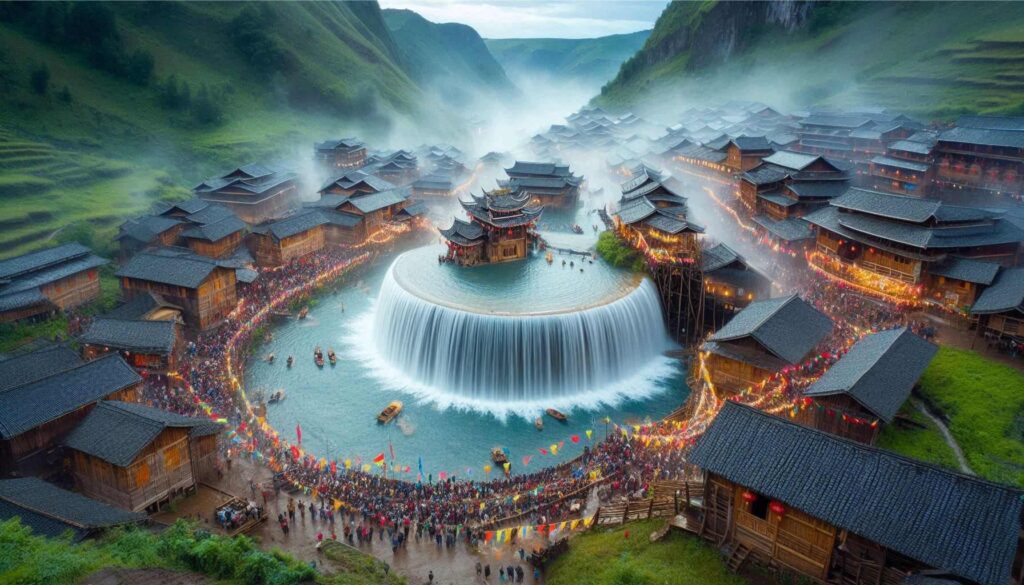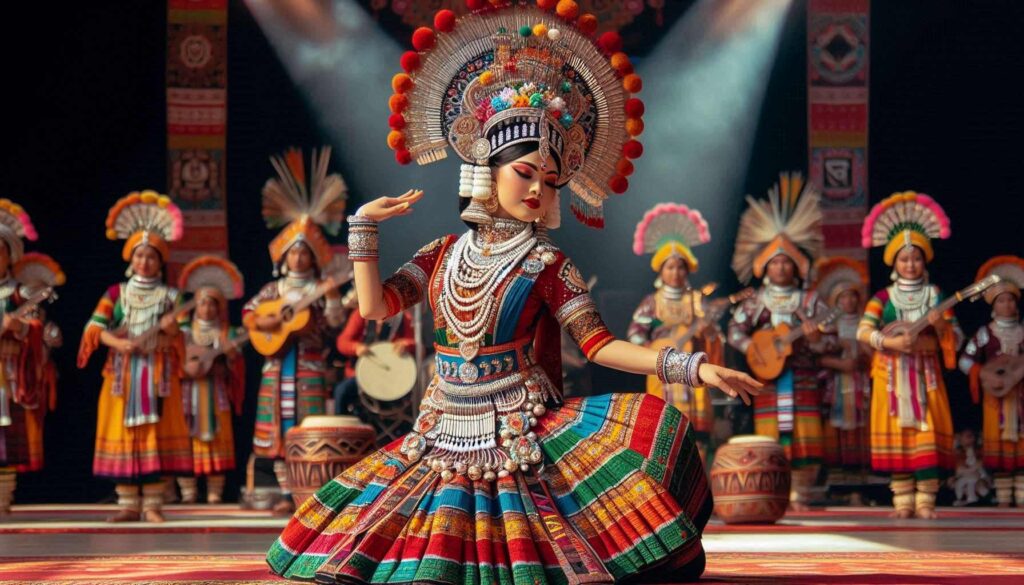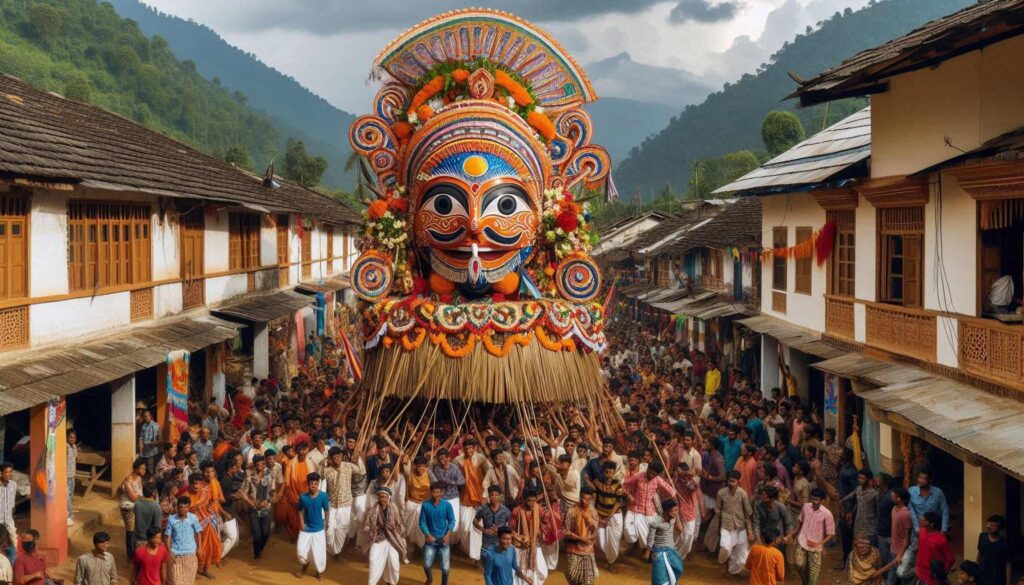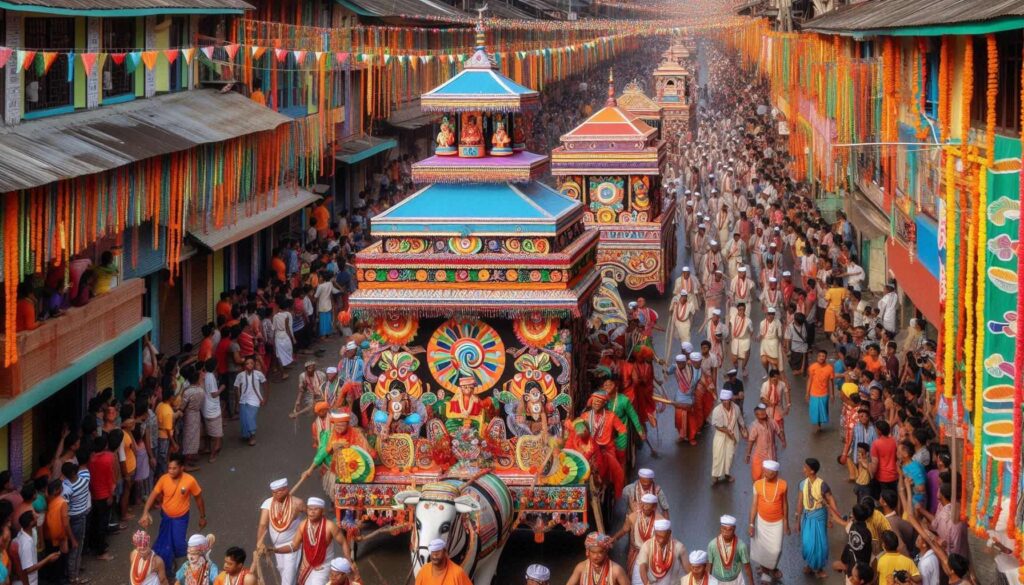Festivals in Manipur in July 2025: Celebrating Culture, Tradition, and Spirituality
Manipur, a state located in the northeastern part of India, is a melting pot of diverse cultural and religious practices. The festivals in Manipur are marked by joyous celebrations, rich traditions, and deep spiritual significance. The people of Manipur take immense pride in their festivals, as they not only celebrate their religious beliefs but also strengthen their cultural bonds. July 2025 is no exception, with several key festivals that will highlight the state’s unique traditions and customs. These festivals embody the vibrancy of the Manipuri people and offer a fascinating glimpse into their spiritual and cultural life.
Read More About Hindu Philosophy
In this article, we will explore some of the most important and celebrated festivals of Manipur in July 2025, understanding their significance, rituals, and how they contribute to the social and cultural fabric of the state.
1. Yaoshang: The Festival of Joy and Community Spirit

Yaoshang, often referred to as the Manipuri Holi, is one of the most widely celebrated festivals in Manipur. Held in March or early April, this vibrant festival is also observed in July in certain regions, with variations in rituals and celebrations. Yaoshang marks the arrival of spring and is a time for people to unite and express joy through colors, music, and dance.
Cultural and Religious Significance
Yaoshang is deeply connected to the religious and agricultural calendar of Manipur. The festival celebrates the victory of good over evil and symbolizes the onset of spring, a season of fertility and renewal. It is closely linked to the worship of Lord Krishna, who is believed to have played Holi with his devotees in Vrindavan.
Rituals and Celebrations
- Playing with Colors: Much like Holi in other parts of India, Yaoshang is marked by people throwing colored powders at each other. Men, women, and children come together in the streets to celebrate, creating a beautiful spectacle of colors.
- Traditional Dance and Music: Folk dances, such as the Manipuri Ras Leela, are performed during Yaoshang. The rhythmic beats of traditional drums and the mesmerizing movements of dancers bring the streets of Manipur alive with energy.
- Religious Rituals: On the first day of Yaoshang, prayers are offered to the gods and goddesses, especially Lord Krishna, to seek their blessings for a prosperous and harmonious year ahead. Families also offer food and sweets to the deities in their homes and temples.
- Community Bonding: Yaoshang is not only about personal celebration but also about community bonding. People from different villages and communities come together to celebrate, sharing food, drinks, and joy. It is a time for unity and reinforcing social connections.
Date of Yaoshang in July 2025: Yaoshang is expected to be celebrated on July 3rd, 2025, based on lunar observations.
2. Saji Nongma Panba: The Harvest Festival

Saji Nongma Panba is a traditional festival observed by the people of Manipur to celebrate the harvest season. It is an agrarian festival that marks the end of the harvesting period, with gratitude extended to the gods for a bountiful yield. The festival is particularly significant in the rural areas of Manipur, where agriculture is the backbone of the economy.
Cultural and Religious Significance
The festival is dedicated to the earth goddess and agricultural deities, thanking them for the successful harvest. It also signifies the harmonious relationship between nature, the land, and the people. It is believed that offering gratitude to the gods during this time ensures future prosperity and fertility for the land.
Rituals and Celebrations
- Offerings to the Earth Goddess: The festival begins with offerings to the earth goddess, including fruits, grains, and vegetables from the harvest. People pray for the continued prosperity of their fields and for the protection of the crops from pests and natural calamities.
- Traditional Dances: On this occasion, people engage in traditional dances, including the Lai Haraoba dance, which is performed to honor the gods. This dance is characterized by its graceful movements and rhythmic beats, showcasing the rich cultural heritage of Manipur.
- Feasts and Celebrations: A major part of the festival involves family gatherings and community feasts. People prepare a variety of traditional dishes, and food is shared with family members, friends, and neighbors. It is a time for merriment and to strengthen social ties.
- Sacrifices and Prayers: During Saji Nongma Panba, families also perform rituals involving sacrifices, where animals like goats or chickens are offered to the gods in a bid to secure divine favor for the coming agricultural cycle.
Date of Saji Nongma Panba in July 2025: The festival is expected to be observed on July 10th, 2025.
3. Kang Festival: Honoring the River Gods

The Kang Festival, observed by the Meitei community, is a major water-related festival in Manipur. The festival is dedicated to honoring the river gods and seeking their blessings for the protection of the land and its people. This festival highlights the importance of water bodies in the lives of the people of Manipur, who rely on rivers and lakes for sustenance and spiritual well-being.
Cultural and Religious Significance
The Kang Festival is an expression of gratitude to the river gods, who are believed to be the guardians of water bodies in the region. It is an important ritual to ensure the prosperity of the crops and protect the environment from pollution and natural calamities.
Rituals and Celebrations
- Ritual Bathing in Rivers: The festival begins with ritual bathing in the rivers and lakes of Manipur. Devotees believe that by immersing themselves in the sacred waters, they cleanse their souls and receive divine blessings.
- Offerings to the River Gods: People make offerings of fruits, flowers, and other gifts to the river gods, seeking their protection for the coming year. Special prayers are recited by the priests, invoking the blessings of the water deities.
- Boat Races and Processions: As part of the celebration, boat races are organized, where people row traditional wooden boats decorated with flowers and flags. The races are accompanied by loud cheers, music, and dance, creating a festive atmosphere along the riverbanks.
- Cultural Programs: Traditional songs, dances, and dramas are performed to celebrate the spirit of the festival. These performances narrate the mythology and legends associated with the river gods and their divine influence.
Date of Kang Festival in July 2025: The Kang Festival will likely fall on July 15th, 2025.
4. Rath Yatra of Manipur: The Chariot Festival

The Rath Yatra, celebrated with grandeur in many parts of India, also finds its significance in Manipur. The festival marks the annual journey of Lord Jagannath, Lord Balabhadra, and Devi Subhadra in grand chariots, with devotees pulling the chariots through the streets in a display of devotion and religious fervor.
Cultural and Religious Significance
The Rath Yatra is a festival that symbolizes the journey of Lord Jagannath and his siblings from the Jagannath temple in Puri to their aunt’s house. It signifies the connection between the divine and human realms, with the gods making their annual visit to the people.
Rituals and Celebrations
- Chariot Processions: The highlight of the Rath Yatra is the procession of the chariots. The three deities are placed on beautifully decorated chariots, and devotees pull the chariots through the streets, singing devotional songs and chanting mantras. It is a time of great spiritual significance, as people believe that pulling the chariot brings blessings and absolution from sins.
- Offerings and Prayers: Devotees offer fruits, sweets, and other gifts to Lord Jagannath and his siblings, praying for their well-being and protection. Prayers are recited, and rituals are conducted by priests during the procession.
- Community Engagement: The Rath Yatra is a community event that brings together people from different walks of life. It is a time for spiritual renewal, where people unite in their devotion and strengthen their social bonds.


